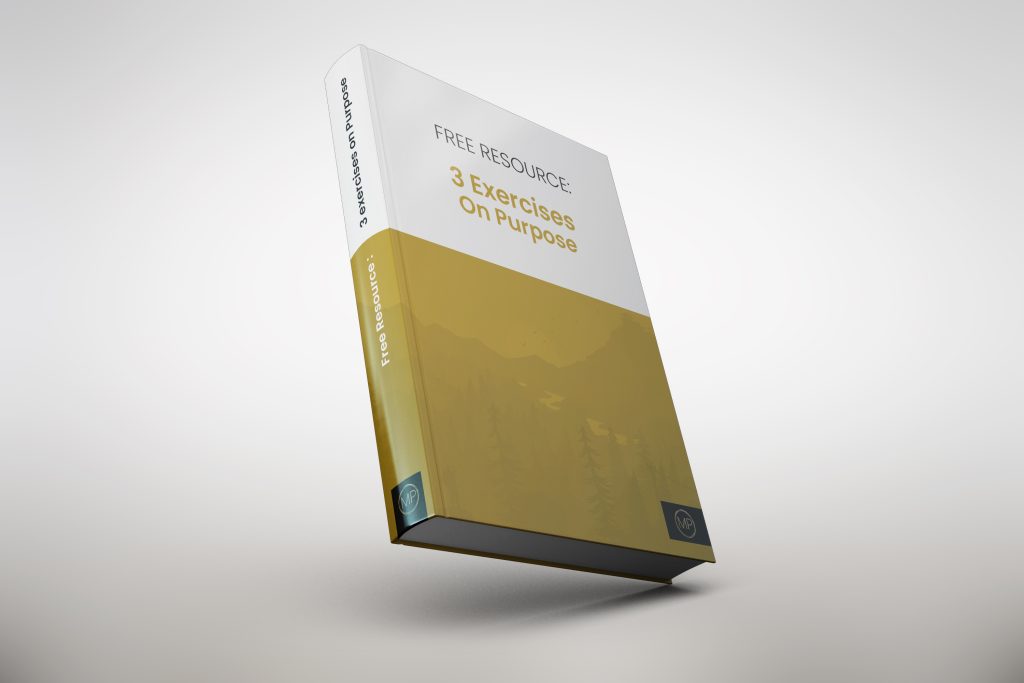“Make the best use of what is in your power, and take the rest as it happens” – Epictetus
In a fast paced way of life it is no surprise that many of us suffer from an increase in stress levels on a regular basis. What are the effects of stress? What methods can we use for managing stress? How to deal with stress?
A CIPHR study in 2021 shared that in the UK:
- 49% of adults feel stressed five or more days each month.
- 30% of adults feel stressed ten or more days each month.
Further research shared:
- 39% of adults said that money worries and a lack of sleep was a strong reason behind their stress levels.
- 23% of adults stated that their work was a big cause of their stress.
It is important to note that not all stress is bad; Eustress refers to the positive thinking behind a stress related event. Stress can prepare us and motivate us for a challenge and we can feel happy and strong by achieving a challenging event. Eustress is also acute and not prolonged stress. For example if we felt stressed before a sporting event, we can use this energy and turn it into a positive to fuel us for the race.
Acute stress is short term such as being stressed in a traffic jam or something going wrong at work that afternoon. Chronic stress on other hand is prolonged stress such as a parent racing around each day and getting caught in traffic followed by daily work stressors over many days, weeks and months of compounded stress related events.
We are naturally built for acute stress to prepare our bodies for a fight-or-flight situation. We are not however built to handle continual anxiety and stress.
“The body’s stress response system is usually self-limiting. Once a perceived threat has passed, hormone levels return to normal. As adrenaline and cortisol levels drop, your heart rate and blood pressure return to baseline levels, and other systems resume their regular activities. But when stressors are always present and you constantly feel under attack, that fight-or-flight reaction stays turned on.”
The effects of stress
Stress can result in many negative health effects including and not limited to:
- Anxiety
- Depression
- Muscle tension and pain
- Digestive issues
- Sleep deprivation
- Impaired memory
- Impaired concentration
- Heart attacks
The American Psychological Association, 2018 shared; “Stress affects all systems of the body including the musculoskeletal, respiratory, cardiovascular, endocrine, gastrointestinal, nervous, and reproductive systems.”
Beyond the many negative effects stress can cause, it also directly impacts other areas of our lives. There is a domino effect of impaired concentration as our mind goes inwards and focuses on our anxiety and not the world around us. From this our ability to communicate effectively with our loved ones, co-workers and others is diminished, our work efforts go wayward and we will have an increased likelihood of making irrational decisions which in turn can result in further anxiety.
“The basic idea is that the brain is shunting its resources because it’s in survival mode, not memory mode,” states Dr. Ressler.
Furthermore, according to Harvard Medical School 2021; “There is evidence that chronic (persistent) stress may actually rewire your brain, says Dr. Ressler. Scientists have learned that animals that experience prolonged stress have less activity in the parts of their brain that handle higher-order tasks — for example, the prefrontal cortex — and more activity in the primitive parts of their brain that are focused on survival, such as the amygdala.”
Tips for Managing Stress
If we do not deal with challenges in life in a healthy way and in a timely manner, we can over many months create new habits overlapping with chronic stress and effectively train ourselves indirectly to become an anxious individual. Here are our tips far managing stress
Accept what you can’t change
When we learn to accept certain situations and let go of what we cannot control, we can learn to how to deal with stress and how to reduce stress. Accepting what is, is not the same as accepting bad behavior from someone and it is not the same as the concept of drifting through life with no aims; far from it. We can be hugely ambitious and driven in life and in addition be strong with our boundaries around others when accepting what is.
For example, if someone is rude to us, we can calmly tell them that their behavior is unacceptable, walk away and wish them well. In doing so we can accept we can’t control others but we can control our reactions and choose how to view a given situation.
If we did not get a job offer, we can accept this and then take charge, be compassionate towards ourselves, learn and grow from this situation. This is in contrast to getting angry or anxious and being critical of ourselves that will cause us stress.
We have the power over our responses, our choices and how we view situations.

Keep your stress under control
If we learn to ‘fall forward,’ in life we can become much happier individuals. Many of us fear failure and what is around the corner. When we learn to embrace life and accept failure, we can be free from many of life’s negatives as we change our way of thinking and then change our way of being. Putting this principle into practice:
- Find passion in life and go after your dreams.
- Accept that you will stumble.
- Pick yourself back up, dust yourself down, practice self-compassion and avoid internal criticism.
- Find a place of calm, reflect with logic and uncover learnings.
- Move forward with your new found learnings.
This is the best way for managing stress; as this mindset can free you up from daily criticisms around ‘failure.’ Stress often occurs due to the way we view our ‘failures,’ and also from overlapping external events such as money. By learnings how to fall forward and accepting falling in a compassionate way, we can alleviate many of our anxieties.
Get active
Exercise and fresh air are fantastic ways to clear our minds and reduce stress. Even a simple walk around the block for twenty minutes can help us to feel better and to put our thoughts in perspective. Regular exercise can improve self-efficacy, confidence, beliefs, and overall mood. Exercise also releases endorphins that make us feel better.
You do not have to join a gym or do anything too strenuous. Small simple steps each day; a five minute walk, then a ten minute walk, then a twenty minute walk and so forth will help. Focus on one inch each day and not a mile.
Exercising with friends has an added benefit and can further increase our mood. According to Science Daily 2017, a study showed that group exercises over individual workouts significantly increased peoples mental, physical and emotional quality with an overall 26.2 percent reduction in stress levels.
Furthermore, nature and natural light can help improve our mood.
Mind Charity shares that Ecotherapy (therapy focussed around nature) has shown to decrease mild depression. When we combine exercise, with social groups and nature, good things happen. The best thing about this is that in the main it is predominantly free. If you however, live within a city try to go to your nearest park with a friend.
According to Jacob Taylor, PhD:
“This buzz has long intrigued observers of human sociality. For more than a century, anthropologists have written about social bonding and community cohesion arising through what Émile Durkheim in 1912 called ‘collective effervescence’ – a euphoric unity generated when humans come together and move together, be it in religious ritual, music, dance, or sport.”
Try meditation
Meditation is a wonderful way to reduce stress and is an essential method for managing stress. Our graphic and page meditation for beginners is a great resource to learn more about mindfulness and meditation. Our meditation techniques page has free meditation videos for beginners and breathing exercises for how to relieve stress. Meditation can also help us to view the bigger picture in life and to connect with the world. For example if we are stressed from a colleague at work; if we were to meditate and imagine planet, earth, the stars, the galaxy and beyond, we can begin to realise how insignificant a rift at work can be, how important life is, and all of the amazing things that we can do in life for the benefit of others and our beautiful planet.
A Breath Practice:
- Find a quiet place of calm and a comfortable chair, lie down on your bed, or a comfortable position. There is no right or wrong here, find the best position for you to relax. Close your eyes.
- Accept any thoughts in your mind with no struggle.
- Breathe in through your nose gently counting up to 4, breathing deeply into your stomach. You may place your hand on your stomach and feel your abdomen raise with your hand.
- Hold your breath for a count of 4.
- Slowly release your breath to a count of 4 through your mouth.
- Repeat this for five minutes.
This practice is a great way to flood your brain and body with oxygen and can help train your to relax before advancing into meditation.
What are some of the health benefits of meditation?
- Reduces stress
- Reduces anxiety
- Reduces blood pressure
- Improves sleep
- Helps us to see things more clearly
- Helps us to process emotions
- Helps us to notice mental shifts and physiological changes
- Helps us connect our mind and body in harmony

Socialise
“Evidence shows that belongingness can enhance cognitive processes, emotions, and behaviors, whereas unmet needs for belonging can have negative short- and long-term consequences in these areas (Gere & MacDonald, 2010).” – Daniela Ramirez, Ph.D.
A lot of stress can be diminished through strong social bonds and social sharing. This goes much deeper than a problem shared is a problem halved. Of course getting challenges off your chest can help you through the process of stress relief, but we are designed to need social connectivity. Many of us are disconnected from meaningful face to face connections in our modern world. We often have fast text based engagement via social media platforms and may not get much time to focus on mindful conversations face to face with the people we care for often enough. To put this into perspective Blue Zones studies found that Costa Rica was one of the happiest places in the world due to a key focus on family and social engagement.
Dan Buettner, Blue Zones Founder shared:
“People experience life the best in Costa Rica. It’s green, there’s easy access to nature, and there’s a feeling of equality as everybody has their basic needs covered. They prioritize social interaction, and they will almost never work extra hours if it means they have to forego a good party. They also prioritize family — Sunday afternoons are spent with family and big long lunches. They are also religious, and research shows that religious/spiritual people are happier.”
Money can be important, careers can be important…. but we should pause…. and spend time with our loved ones and also people who energise us and make us feel alive.
Take it one day at a time
How can we be more mindful and learn the best ways of managing stress through such practices?
- Walk in nature as often as possible and embrace the trees, the leaves, the sky and simply watch nature with awe.
- Divide your day into mini chapters and practice full focus on 30 minute tasks. If you are going to talk to someone, then focus fully on that persons tonality and words without scrolling on your phone. If you are going to read, then read for 30 minutes in a quite place with no distracting technology present.
- Have a phone basket in your home and put all family phones in this basket so that you can focus on one another during dinner.
- Create micro-goals and have rewards for yourself. For example, you may plan a jog with a friend in nature and then by sticking to this plan you can treat yourself to a drink with your friend afterwards.
Revel in down time
Embrace ‘you time,’ for at least 30 minutes each day. No matter how hectic your life is, you must prioritise this at all costs. Reduce your social media time, reduce any ‘time wasting,’ and create a window of time just for you to help you when managing stress.
- Take a bath
- Listen to classical or calming music or nature sounds
- Sit in the garden
- Practice yoga
- Meditate
- Read a chapter of an inspiring book
- Go for a local walk
This is a great way on how to deal with stress.
Prevent stress before it happens
Like many problems in life, prevention is often better than the cure. Accept that we cannot feel happy all of the time, and it is healthy to feel negative emotions underlined with curiosity and a healthy process of flowing through them. However we should aim to reduce stress in our lives and be mindful of the early onset of chronic long term stress. How can we start managing stress and prevent stress before it happens?
- Meditate everyday to understand your body and mind connection and emotional triggers.
- When you feel a spike in anger or anxiety, take five minutes, practice breathing and leave the the room if you need to.
- Exchange any negative thought or criticism with two positive or kind thoughts.
- Practice gratitude each day.
Conclusion
We have seen the negative effects of chronic long term stress and we have learnt ideas and tips on how to deal with stress. If we can catch our negative thinking patterns and prevent stress before it happens and we can be compassionate and understanding around the concept of failure for growth then we have a platform to start managing stress. Moving on from this if we take time for self-care, socialise regularly, exercise regularly and mix this with as much time in nature as possible, we can reduce the negative consequences of stress and be much happier and healthier well rounded individuals.
Thanks for listening.
Wishing you health and well-being.
References
9 Questions for Dan Buettner: Happiness Lessons From the Happiest Places in the World – Blue Zones
Chronic stress puts your health at risk – Mayo Clinic
Stress: the good, the bad, and the ugly | BPS
30 Stoic Quotes On Confronting And Discarding Anxiety (dailystoic.com)
http://www.ulifeline.org/articles/450-good-stress-bad-stress
https://www.healthline.com/nutrition/12-benefits-of-meditation
Protect your brain from stress – Harvard Health
Social Motion Boosts Performance and Connection – Blue Zones
Stress effects on the body (apa.org)
What Is Social Wellbeing? 12 Activities for Positive Relationships (positivepsychology.com)
Image References
Feature Image – Ben White on Unsplash


